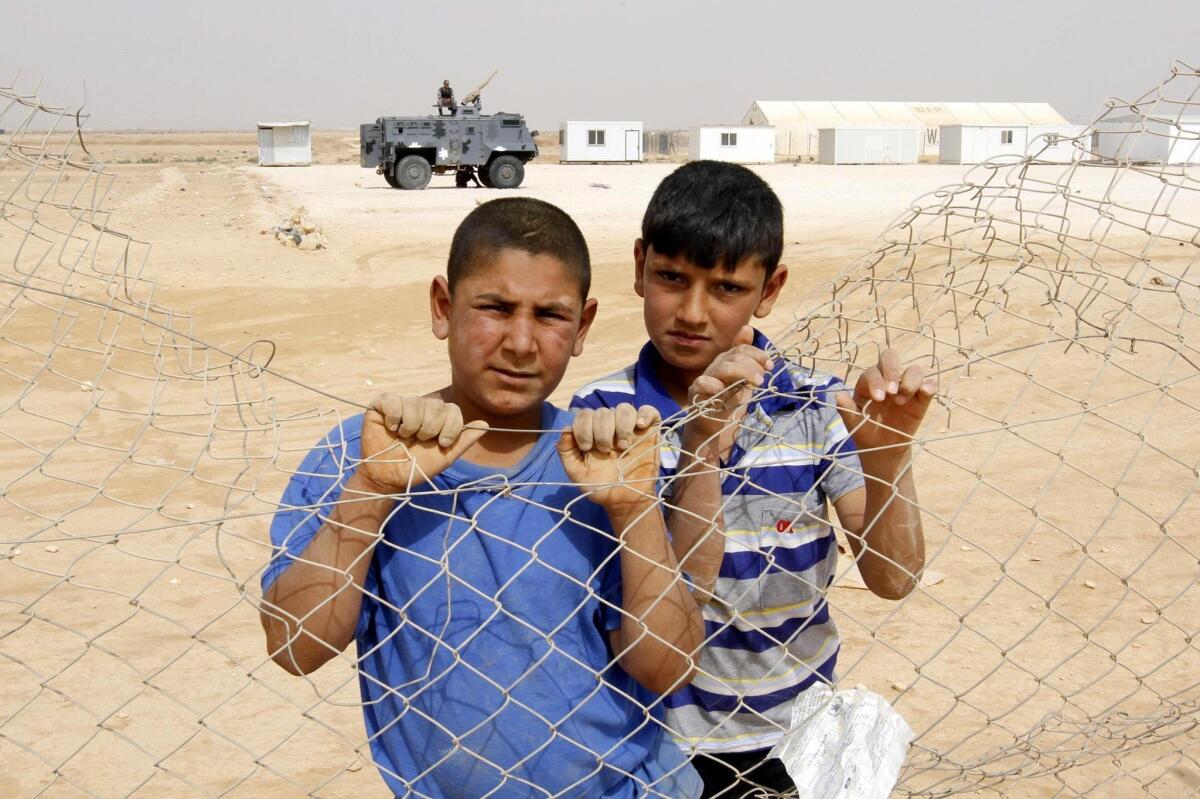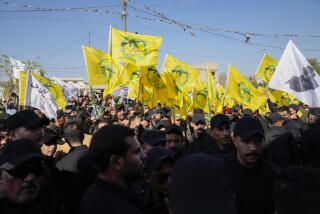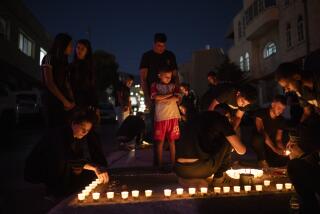The struggle for Syria

My cousin, Ramez, was dead before the echoes of the gunshot that killed him stopped ringing. His 4-year-old daughter, Zeynab, watched him fall on a narrow street in Damascus, but she never heard the shot because she is deaf. She held onto his lifeless hand until a second bullet tore into her chest. She survived.
I tell this story to make it clear that my family and I have experienced the civil war firsthand. Ramez was just one of several family members who lost their lives in the battle against Bashar Assad’s police state. My mother, sister and brother, alongside millions of other war-torn Syrian refugees, were forced to flee to Lebanon and then on to Baghdad.
But despite the seriousness and severity of the situation, I don’t believe that the United States should intervene militarily in Syria. Any direct or indirect intervention by the U.S. would exacerbate Syria’s internal conflict and increase the number of people being displaced and killed.
MCMANUS: Obama plays for time to avoid ‘red line’
One argument advanced by those advocating U.S. military intervention is that it would advance America’s national interests and security in the region. If the U.S. were to help topple Assad, the argument holds, Iran would lose its most consistent regional ally. In addition, they say, the next Syrian government would probably be led by Sunni Muslims, and therefore more likely to align itself with Saudi Arabia, a U.S. ally, than with Iran.
But these arguments ignore an important history lesson: Iran has a track record of finding a way to benefit from instability in neighboring countries. The protracted civil war in Lebanon during the 1970s and ‘80s, for instance, created a ripe environment for Iranian leaders to nurture one of the strongest nonstate actors in the region: the militant group Hezbollah. And after the 2003 U.S.-led intervention in Iraq, Iranian leaders were able to create a powerful Shiite Muslim proxy there.
The Iranian leadership’s tactical strategy has always been to clandestinely invest in local groups that can serve as proxies for its interests, capable of fighting not only regional governments but also world powers such as the U.S. and its Western allies.
EDITORIAL: A ‘red line’ on Syria
Iran is already helping to supply the Syrian regime. And if the U.S. were to intervene in Syria and liberate Damascus, Iran would move quickly to reinforce its already strong political bonds with Alawite leaders. Iran’s leaders are, I believe, capable of creating in Syria a surrogate as powerful as Hezbollah. An Alawite proxy could stoke considerable tensions in the region and keep Syria destabilized indefinitely. The price of oil would probably rise as a consequence, which would also serve the interests of the Iranian leaders.
Another argument for intervention holds that it could pave the way for a democratic system of governance in Syria, which would then be strategically and politically allied with the United States. But those who make this case should more carefully consider the sociopolitical fabric of Syrian society, as well as the process by which democratization happens in the Middle East.
It is unlikely that intervention would lead quickly to the creation of a democratic government. If regime change came about because of U.S. intervention, Russia, China, Iran, Iraq, Saudi Arabia and other Arab gulf states would feel a need to exert their influence more strongly as well, in order to protect their own geopolitical interests. The country could well become the battleground for an international proxy war in a way the world hasn’t seen since Vietnam. In addition, fundamentalists and Al Qaeda-backed groups would view U.S. intervention as a call to arms and would capitalize on the instability and insecurity to advance their fight against the West.
The sources of strife in Syrian society emerge from not just religious differences but also ethnic ones, and there’s no way of imposing an outside cure for those divisions. Religious sects within Syria include not only Alawites and Sunnis; there are Christian, Druze and Shiite populations as well. Tensions between different ethnicities, such as between Arab and non-Arab, would add fuel to the battle. There are Syrian Kurds who are Sunni, but there are also Syrian Alawite Kurds. The complexities make it extremely difficult for the United States to have a positive role in the conflict.
None of this is to say things will be easy for Syrians going forward, nor is it to suggest that the United States and other countries have no role. Countries concerned about the bloodshed should join together to address suffering. Humanitarian corridors need to be created by the United Nations and the International Committee of the Red Cross to address the urgent medical and basic needs of Syrians, both those in the country and those who have taken refuge elsewhere. The international community should also do everything in its power to encourage Moscow and Beijing to withdraw their support for Assad.
So what comes next? If Assad is deposed, it is Syrians who will have to decide collectively what kind of state will come next. It is also possible that the opposition groups and rebels would agree to negotiate an end to the conflict with Assad, allowing him to stay in power in exchange for massive political reforms, including a new constitution that would allow for an orderly transition to a democratic system of governance. The way forward can only be shaped by Syrians.
Majid Rafizadeh is an Iranian-Syrian scholar and president of the International American Council on the Middle East. He is on the Harvard International Review’s board of advisors. rafizadeh@fas.harvard.edu
More to Read
A cure for the common opinion
Get thought-provoking perspectives with our weekly newsletter.
You may occasionally receive promotional content from the Los Angeles Times.










